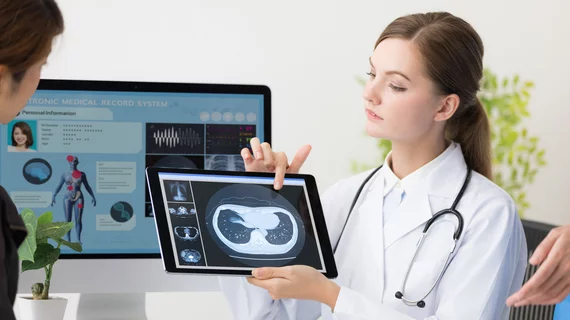ACR offers update on radiology report access under new information-blocking rules
The Office of the National Coordinator for Health IT recently updated its guidance on forthcoming interoperability regulations to answer radiology reporting concerns first raised by the American College of Radiology.
Back in October, the ACR said it had been receiving many similar questions wondering if providers’ current practice of releasing reports via patient portals after a specified period of time would constitute information blocking.
In the ONC’s updated Jan. 15 guidance, it clarifies that providers are not required by the provision to proactively release such reports or other electronic health information (EHI) to patients who have not requested it.
The federal group did note, however, that any delay in providing patients with information they had previously requested may be in violation of the new rules.
“While the information blocking regulations do not require actors to proactively make EHI available, once a request to access, exchange or use EHI is made actors must timely respond to the request (for example, from a patient for their test results). Delays or other unnecessary impediments could implicate the information blocking provisions,” the ONC said on its frequently asked questions page.
The division of the Department of Health and Human Services also stated that, in practice, this could mean a patient would be able to access information “in parallel” to when the ordering clinician has access to results.
HHS and the ONC finalized rules in March 2020, which enact the interoperability provision of the 21st Century Cures Act. Then in October, federal regulators pushed back the compliance dates required to meet these regulations until at least April 5 in an effort to give hospitals and providers more flexibility to respond to COVID-19.
The ACR, among other groups, had long been lobbying for HHS to push back these deadlines.
Read more from the ACR about the info-blocking rules here.

